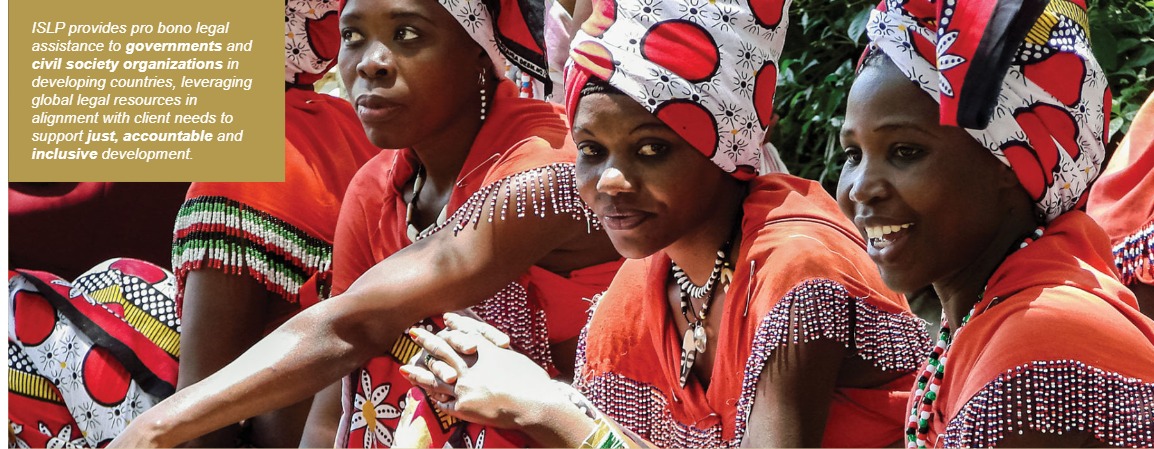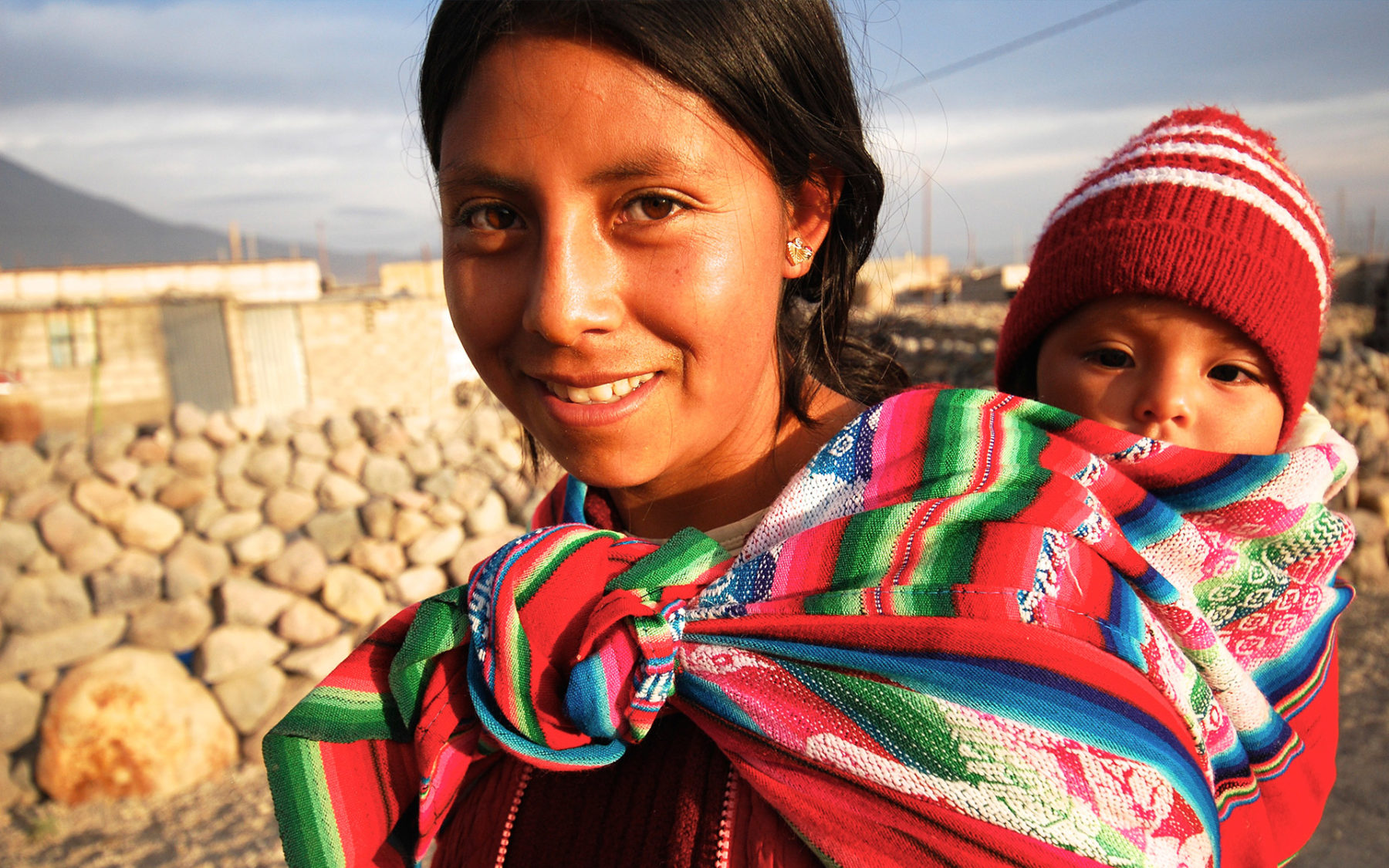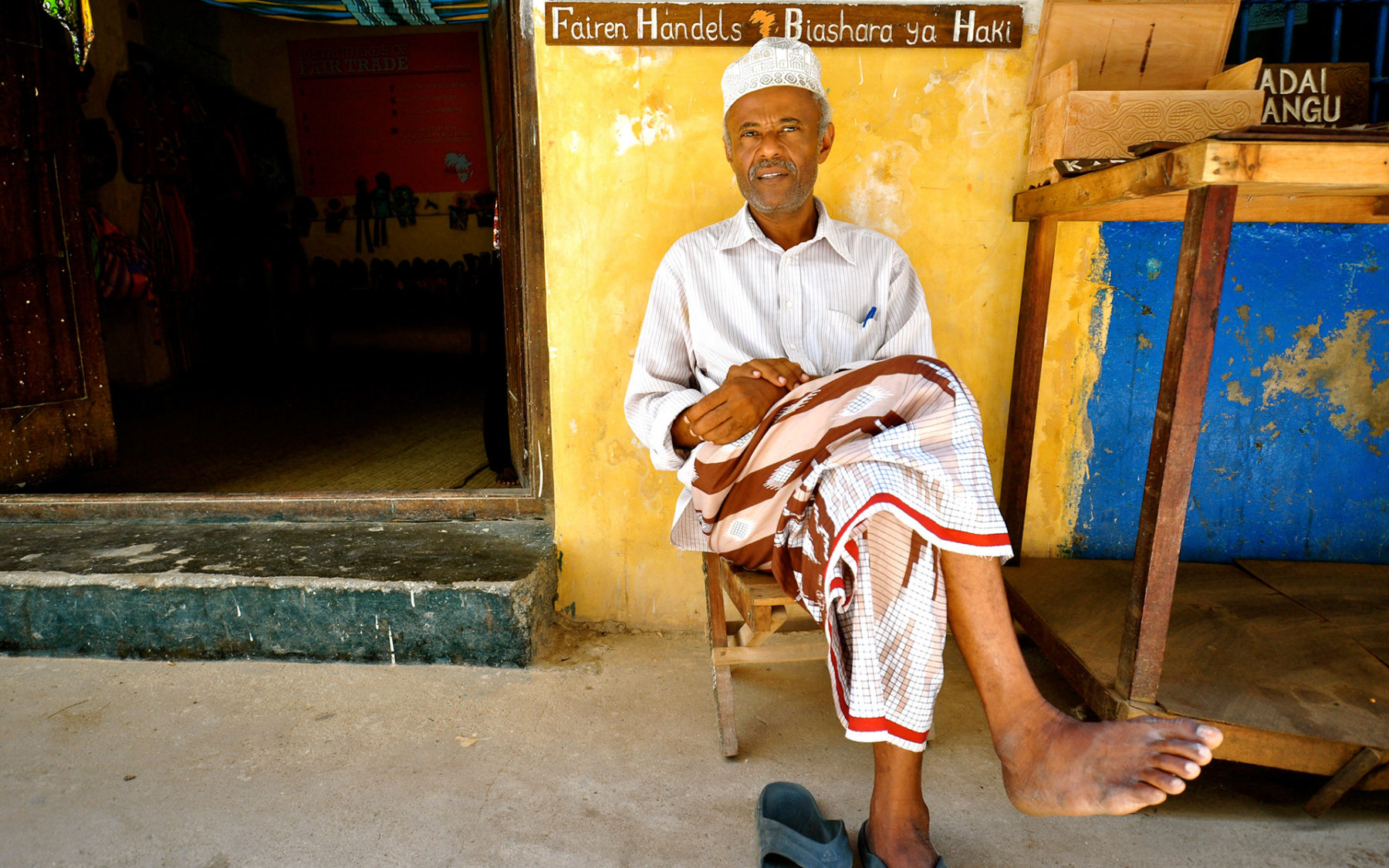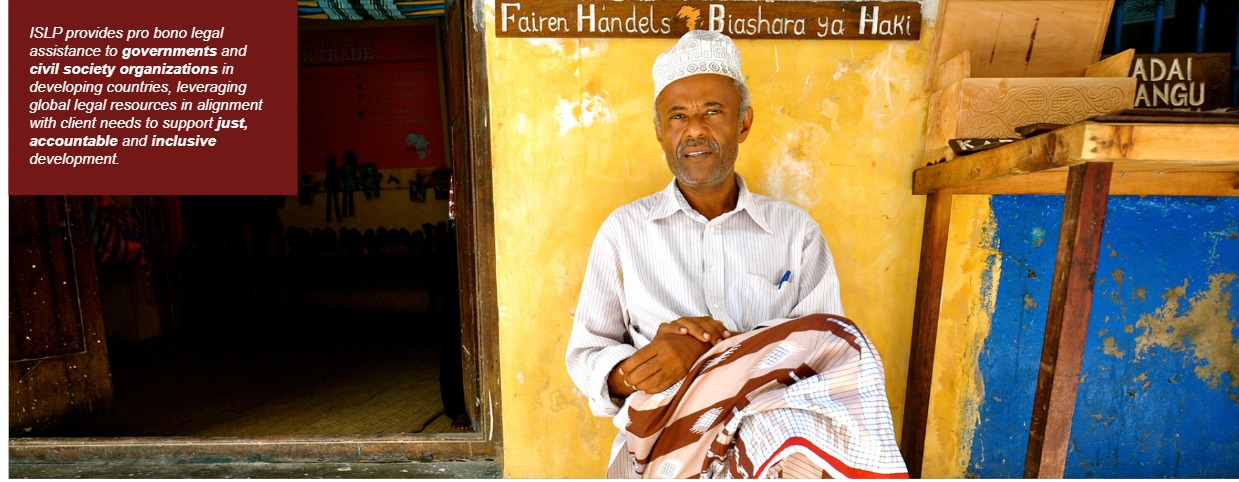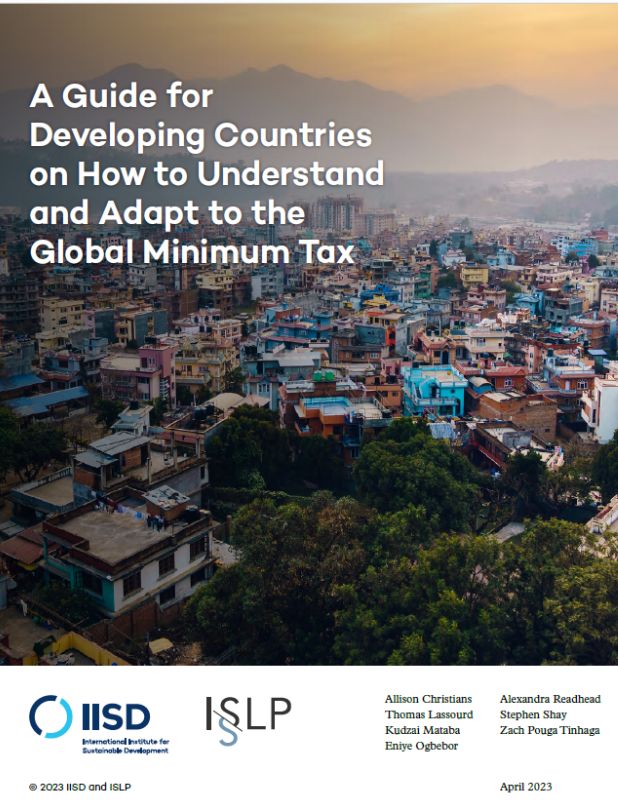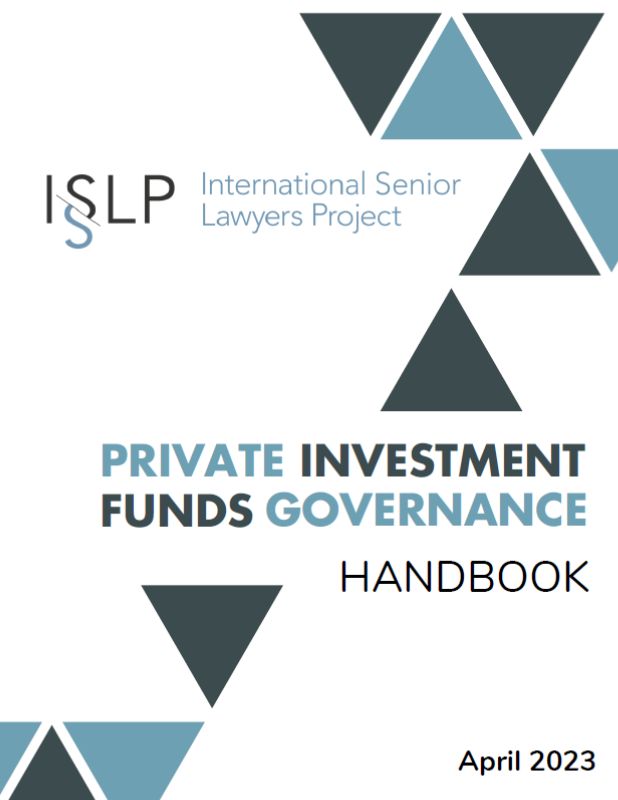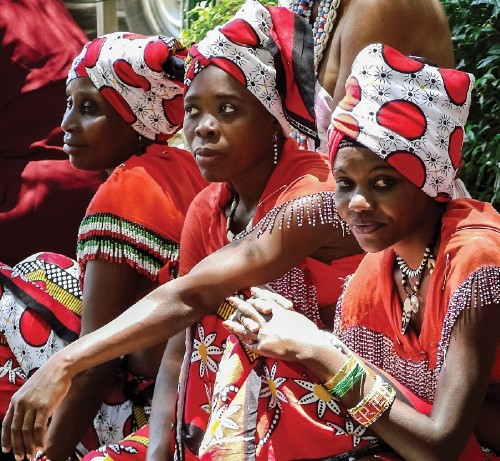
ISLP works at the intersection of global development and the rule of law. We mobilize pro bono legal support to expand economic opportunities and foster good governance.
What We Do
ISLP provides top-tier pro bono legal services to three primary groups of clients — governments, civil society actors, and social enterprises. We believe that engaging private and public sector stakeholders is essential to stimulating and supporting locally-led development and economic growth that can benefit all.
ISLP’s legal support focuses on the following intersecting thematic areas:
- accountability and transparency/anti-bribery and anti-corruption
- civil society engagement
- investment and trade
- media law and freedom of expression
- energy and natural resource management
- responsible technology
- social enterprises and innovative finance
- tax
We seek to engage where there is a genuine need for pro bono legal assistance and the opportunity to make a contribution to global development and the rule of law.
Engagements are driven by client needs and based on the attorney-client model: volunteer legal experts provide advice and guidance, while clients direct development decisions and outcomes.
Where We Work
ISLP regularly handles over 100 projects each year throughout the Global South.
Hover over dots on the map to see recent examples of our impact around the world.
News
David A. Schulz Volunteer Spotlight
We are thrilled to feature David Schulz in our latest Volunteer Spotlight! ISLP extends heartfelt thanks to David, a dedicated media law volunteer, for his invaluable contributions to our [...]
Tribute to Dick Winfield – November 2024
In Memoriam Richard “Dick” Winfield 1933 - 2024. ISLP Newsletter Special Edition, November 2024. With heavy hearts, ISLP pays tribute to our beloved colleague and friend, Dick Winfield, who passed away on October 22 at the age of 91.
ISLP hosts two-day dispute resolution training: The Role of Arbitral Secretaries
As part of our ongoing efforts to support African legal communities and Africa-based alternative dispute resolution centers, ISLP partnered with the Nairobi Center for International Arbitration and the Lusaka International Arbitration Centre to [...]
Recent ISLP Publications
Global Minimum Tax Guide
Many countries will be affected by the Pillar Two Global Anti-Base Erosion (GloBE) minimum tax proposal whether or not they participate actively in the OECD–G20 Inclusive Framework on base erosion and profit shifting. The GloBE initiative creates a pool of potential tax revenues on corporate multinationals’ incomes to be collected by GloBE participating countries whenever the effective tax rate of a multinational in the country falls below 15%.
Private Investment Funds Governance Handbook
The International Senior Lawyers Project (ISLP) is pleased to make this Private Investment Funds Governance Handbook available to the impact investment community. The Handbook was authored principally by a team of seasoned private equity lawyers from the respected Morgan, Lewis & Bockius international law firm acting pro bono publico.


